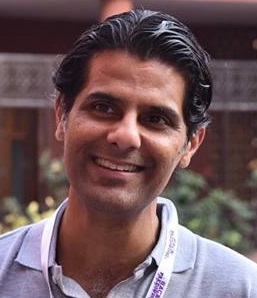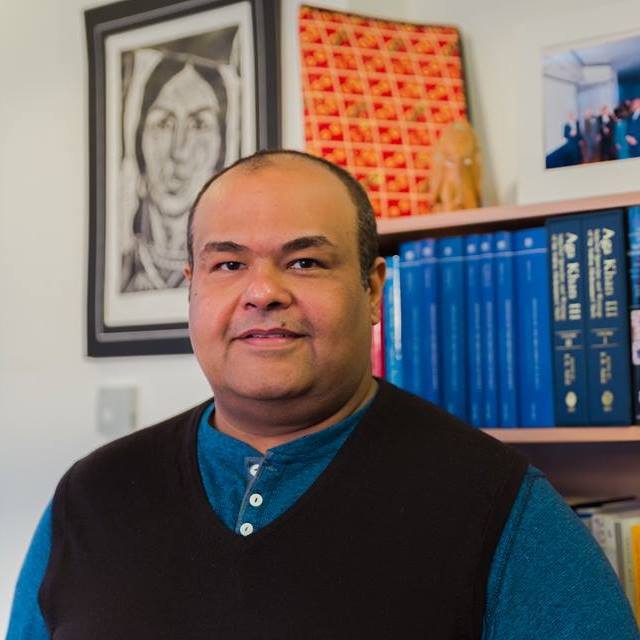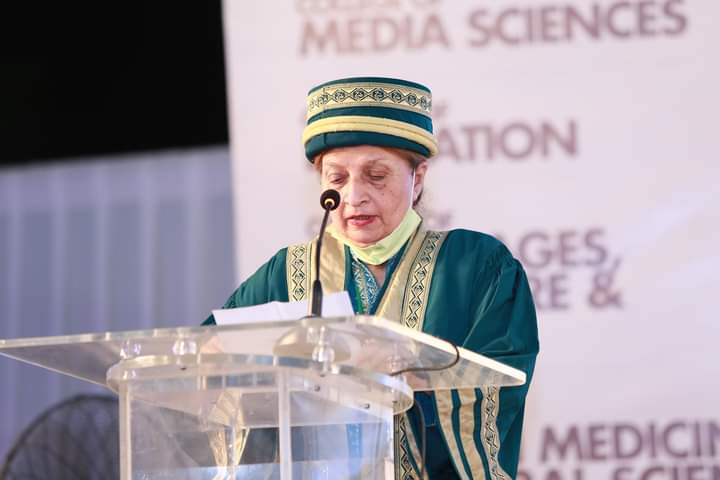Panel Discussion
Multidisciplinary programs in Humanities and Social Sciences: Opportunities and Challenges
Panelists:

Dr Farid Panjwani
Dean, Institute for Educational Development, Pakistan
Dr Farid Panjwani, Dean, AKU-IED, has a DPhil in philosophy of education
from the University of Oxford. He also holds an MA in Education and
International Development from the Institute of Education, University
College London and an MBA and a BBA from the Institute of Business
Administration, University of Karachi.
Dr Panjwani is driven to improve the quality of education, particularly in
developing countries and in Muslim contexts. He has an interdisciplinary
approach and has published widely in the areas of philosophy of
education, citizenship, teacher education, imagination, religious
education, hermeneutics and Islamic Studies.

Asad Mian MD, PhD
Associate Professor and Chair of the Department of Emergency Medicine at the Aga Khan University.
sad Mian is also Director of the Critical Creative Innovative Thinking
(CCIT) Forum – a co-innovation / incubation hub at AKU.
Although Asad is an ER physician-researcher and innovator-intrapreneur,
it’s really proclivity to writing that’s his means of “creative exploration
and expression”. His articles on healthcare, education, innovation,
children, humor, and popular culture have appeared in newspapers in the
US and in Pakistan. Other than the fictional “Biloongra” series of multi
lingual books for children, he has authored ‘An Itinerant Observer’, short
stories first published in the US in 2014 and reprinted by Bookgroup in
Pakistan in 2020.
Asad and his team of maverick (aka “crazy”) ideators and innovators have worked extensively on multi disciplinary educational programing through Ignites, Hackathons, Innovation Fellowships, Incubation Cohorts, etc. that curt across healthcare / biomedicine and merge with arts, humanities, social sciences, business, IT-tech, engineering, etc. You may read more about all that work, as well as how to attempt it yourself and do it even better, in “MEDJACK: the Extraordinary Journey of an Ordinary Hack.” This is his team’s first non-fiction, popular science book on low-cost creative innovation and entrepreneurship and it hit virtual bookstands this summer.

Dr. Al-Karim Datoo
Social Scientist, Assistant Professor, IBA, Sukkur
Dr. Al-Karim Datoo is a social scientist working in interdisciplinary research intersecting fields of sociology, ethnography and education. He brings this interdisciplinary lens and practice to work on three interrelated areas: curriculum, critical/pedagogy and teacher education with which he has engaged in university and international development consultancy roles. He has taught in higher education context of U.K. and Pakistan.
He has done PhD in cultural sociology of glocalisation and education from McGill University, Canada, and an M Sc. in Educational Research Methodology from the University of Oxford, United Kingdom. His doctoral critical ethnography was nominated for a ‘‘Distinguished Canadian Thesis Award’’ by McGill. Dr. Datoo has conducted educational and social field-research across: Canada, U.K., Kenya, Uganda, Tanzania, Mozambique, Tajikistan, and Pakistan (including Northern Areas of Pakistan). He has taught at UCL-IOE, AKU-ISMC, AKU-IED in different capacities. Currently he is consulting with Sukkur-IBA University where he is contributing towards design-enrichment of the Ph.D. and B. Ed. programs. Main areas of research interest and experience include: school ethnography, sociology of curriculum, sociology of risk, vulnerability and exclusion, Alternative Learning Paths for OOSC, policy sociology (SDG 4 lens in ‘new’ normal), and diaspora studies/inter-generational transmission of values, sociology of youth suicides.

Dr. Uzma Rashid
Associate Professor, Department of Peace and Conflict Studies, University for Peace, Costa Rica
Dr. Uzma Rashid currently serves as Associate Professor, Department of Peace and Conflict Studies, and Academic Coordinator for the Religion, Culture, and Peace Studies, and Gender and Peacebuilding programs at the United Nations Mandated University for Peace, Costa Rica. Dr. Rashid also teaches as Adjunct Professor in the Global Studies Program at Long Island University, New York, USA. Prior to this, she worked as Chair at the Department of Sociology, and Associate Dean for Research of the School of Social Sciences and Humanities at the University of Management and Technology, Lahore, Pakistan.
Dr. Rashid has done her PhD as a Fulbright scholar from the Language, Literacy, and Culture program at the University of Maryland, Baltimore County, USA, and has extensive teaching, training, and research experience in a variety of contexts. Her academic work and research interests have consistently been inter- and transdisciplinary in nature, with the aim of working towards equity and justice by furthering an understanding of power relations in the intersections of gender, sexuality, religion, race, ethnicity, caste, ability, and class at the multiple levels on which they operate. She is also a certified trainer for empowerment self-defense and conducts trainings with a holistic view of tackling violence, especially sexual and gender-based violence.
Moderator:

Ms Rana Hussain
Principal College of Education, Ziauddin University
Rana Hussain, Principal College of Education, Ziauddin University since April
2019, but the journey started in 1966 as a school teacher in one of the elitist
school in Karachi and then onwards; after that, there was no looking back –
teaching, pursuing education, managing schools and professional
development activities in teacher education form South in Sindh to the
northern areas of Pakistan. The quest for learning and how to contribute
to my own teaching and teaching of others took me to different parts of the
world: USA, Canada, UK, Eastern Africa and Bangladesh.
The global experience of education and teacher education helped me in better understanding of my role. As Henry Giroux rightly defined ‘transformative intellectuals’ the ones who have the right to vice their beliefs about a set of pedagogical knowledge and values and to question /oppose the knowledge and values unilaterally passed on.
In my current role as Principal of College of Education at Ziauddin University and as an active member in the education industry (Sindh- where I make contributions in school curriculum, text books, teacher education, and education policies,) my struggle continues at all these forums to overhaul the education system through teachers as transformative intellectuals and ensure a political will to re –contextualize the schools and learning spaces as sites of political and ideological struggles.

